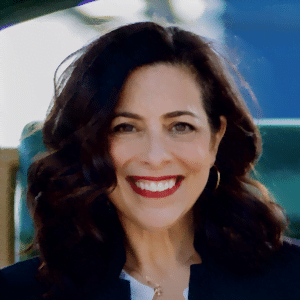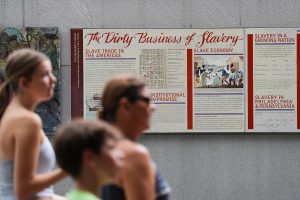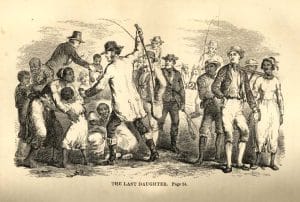“The task of resisting our own oppression does not relieve us of the responsibility of acknowledging our complicity in the oppression of others.” – Beverly Daniel Tatum
It was during my first year in graduate school that I read Beverly Daniel Tatum’s 1997 book, Why are All the Black Kids Sitting Together in the Cafeteria?. This may have been the first time in my life I had a serious conversation about the role of race in one’s life experience. I had always thought of myself as a person who would fight for the rights of others and stand up for what I believed in. And, as a White woman with very limited experience outside of my immediate community, two things were true – 1. That belief about myself was never really tested, and 2. I had to acknowledge the ways in which I fell short of this belief in myself.
CBSD is currently looking for a DEI Director. Personally, I see this as a very positive step. However, there are some who are expressing concern that DEI work leads to “hate”. To be sure, I see the very real discomfort that can come from deep reflection about our role in others’ pain. However, feeling discomfort is not the same as experiencing hate. In fact, growth often comes with some level of discomfort. DEI work requires us to both expect and accept discomfort. On the flip side, avoiding this work leaves marginalized groups feeling unsettled and perhaps majority groups avoiding worry just by virtue of pretending there is no problem.
Let’s break down the terms:
Diversity asks us to think about who is in the classroom, district, sports field, stage, community, etc. And, diversity could be referring to many variables that make up our individual identity. If you are up for it, I invite you to engage in a brief activity. First, make a list of all of the ways you identify yourself. Examples of categories could include your race or ethnicity, religion, gender, socio-economic status, sexual orientation, (dis)ability status, age, political affiliation or any other identities that are important to you.
Now, cross one out.
Which one can you cross out and not feel too bad about?
Now, cross another one out.
Now, cross another one out. Yes, you must choose.
Are you feeling uncomfortable yet? How many can we cross out easily, which are non-negotiable? This is different for everyone.
The point is that we are all carrying a lot of different identities with us. And, those identities are important parts of who we are. Some more than others. This is what is commonly referred to as intersectionality. The recognition that we are always seeing situations through more than one lens and set of life experiences. It is important for us to know that about ourselves and others.
READ: Pennsylvania Takes Valuable Steps Forward to Help Teachers Create Anti-Racist Classrooms
Equity became a contested term over the past few years but it is really quite simple. Equity is asking for the fair treatment of all people. The difference between equity and equality is that equality is everyone getting the same and equity is about everyone getting what they need. Equity in our schools (and lives) is important because we need to be providing children what they need in order to support their ability to thrive. For example, a student arriving with limited English proficiency needs a different level of academic support than their peers. And, if that child is arriving from a difficult circumstance in their home country, they may also need counseling support or trauma informed approaches. It would not make sense to give everyone extra help in learning English, even though that would make it equal. Providing supports that are appropriate to individual student needs is equity.
From my perspective Inclusion and Belonging are related. Inclusion refers to the belief that everyone in our classroom, school, community, etc are encouraged to contribute in meaningful ways. This looks like all voices being represented and heard. If students of color are represented in numbers but do not feel safe and accepted in the space, that is not inclusion.
Some scholars argue that inclusion is not enough because it is often conflated with access. This is why I am advocating for the addition of belonging. Having access to a school that is not accepting or worse, hostile to one’s identity is clearly not going to result in a good outcome.
An example of this is when the CBSD school board instituted a policy that called for the removal of symbols of support for the LGBTQIA+ community. All students still had access to the high quality teachers and resources available in the district. And, teachers and other staff were still employed in a great district with good pay and benefits. But, in order to access this space with all of its privileges, each member of the community had to accept that some of its members were accepted on the condition that they leave part of their identity at the door.
In order to foster a climate of belonging, members of the community must experience an ability to bring their whole selves into the space without judgment. Think back to the exercise I invited you to do where you listed the ways in which you identify and had to cross some out. Now imagine you don’t feel safe at school unless you cross out one or more aspects of your identity that are deeply meaningful for you. This is why belonging is essential.
READ: In Central Bucks School District, the Campaign for Policy 321 Sowed Distrust with Our Teachers
All that said, there’s a line, at least for me. I have heard the concept “diversity of thought” used to encourage the acceptance of all views. To be sure, there is more than one way to think about almost any situation. I initially heard this concept and interpreted through my lens and defined it as being sure all voices are heard.
That, to me, was a positive. However, I have experienced this concept being used as a way to justify bringing hateful rhetoric into spaces. This is where I struggle.
When we do DEI work well, we make space for mistakes. It is inevitable that someone will say something in a way that does not sit well in the group. Someone in the group may say something that is hurtful. There is often an agreement among members of groups working on restorative practices that we will expect that some of us will stumble, say the wrong thing, ask a sticky question, or inadvertently say something problematic. A skilled facilitator knows how to navigate these situations.
When this happens, it’s important to try to find out where the hurtful sentiments are coming from and try to understand that person’s perspective — especially when it’s a child. It could be that they don’t yet have the skills to articulate their thoughts in a more productive way. We can work on that.
But, if a context becomes unsafe because of the behaviors of some in the group, that must be addressed. There is a line between good intentions in doing the work and asking others to accept hateful rhetoric as “diversity of thought”. For me, pointed and bigoted views about a person’s humanity is not a valid opinion that must be welcomed as a legitimate alternate perspective.
“To say that it is not our fault does not relieve us of responsibility. However, we may not have polluted the air, but we need to take responsibility, along with others, for cleaning it up. Each of us needs to look at our own behavior. Am I perpetuating and reinforcing the negative messages so pervasive in our culture, or am I seeking to challenge them?” ~ Beverly Daniel Tatum
READ: Why I Didn’t Quit Central Bucks School Board
An example from my own experience was with a district that has many students coming from Latin America. The US is a society that prides itself on its individualism. In a typical classroom, students have their own pencil boxes and supplies and there are often classroom norms that make statements like, “Do not touch other people’s property”. If a child reaches into another person’s desk for a pencil or eraser, accusations of stealing and arguments are common. However, the students from Latin America are accustomed to a much more collectivist society where sharing is the norm. A student from a collectivist culture would expect materials to be shared and very surprised at accusations of stealing. This is an opportunity for educators to know and understand the identities in the room and create a space where diversity is honored, equity is visible, and inclusion and belonging are felt.
It is not that DEI causes hate, it is that the discomfort of people unwilling to explore their beliefs that is exacerbated.
This brings me back to whether CBSD needs a director for DEI and why the answer is “yes”. We don’t want to teach our children less or leave out important parts of our history or of world history. But, it is essential that we know how to teach difficult topics and lead courageous conversations. Without guidance, professional development and practice with these skills, we run the risk of doing it poorly. When DEI initiatives are run poorly, we can create harm in places where our intent was to heal.
At the most recent Policy meeting on May 22, interim superintendent Dr. Scanlon shared that all staff, teachers, and administrators are required to take a course on Culturally Inclusive practices which includes sections on “anti-semitism and youth speaks and educators listen”. This is an important first step because it recognizes that in order to do this work well, we need to be intentional about training our staff.
A large part of public comment and discussion at that meeting was about the role of club advisors in approving social media posts on club pages. This has been an on-going tension in the district centered on the Jewish and Muslim student groups. And, although the students themselves and their advisors have been engaged in restorative work there have still been social media posts that are concerning to many community members.
There were two main perspectives. Some people felt strongly that social media pages should clearly state they are not representative of the district and students can have free reign in posting. Others felt that students should get permission from a club advisor before posting. The first option allows for the most freedom and the least liability for the teacher/advisor and school district. At first glance that may seem ideal. However, that approach does not recognize the developmental nature of adolescence and how the club advisor can have an integral role in supporting students’ communication skills as they begin to transition into adulthood. Adolescents are naturally curious, eager, opinionated and impulsive. These are sometimes characterized as liabilities but are actually amazing qualities. An adolescent’s ability to jump in and take risks lead to many positive discoveries. Those same risky behaviors can lead to problematic outcomes.
Applying this idea to the policies being discussed in CBSD, it seems prudent to have students at least consult with advisors before making a post. For instance, a student might be scrolling and find a meme or post that with which they immediately identify. Impulsively – because that is the nature of adolescence – they repost it on a CBSD club platform. That post is noticed, some people just scroll right past, some hit “like”, and for others it is received as a harsh critique, an insult, or maybe even hate speech. What might have seemed like a simple post is now the center of a storm. An advisor is an adult with more life experience than the student. That advisor also likely understands the world from a wider and more inclusive perspective. The advisor is also a teacher with years of training in how to communicate content effectively. When a student gives the advisor an opportunity to advise, they may be asked questions like, “What does this post mean to you?”, “What are you trying to communicate with this post?”, “How might this post be received by someone who disagrees with you?”, “How can we communicate our truth in a way that does not cause harm to others?”. This is a social skill.
READ: Central Bucks Teachers Need to Be Equipped and Supported to Facilitate Discussions about Israel and Palestine
Now, the district might still say that teachers and advisors (and by extension the district) are not responsible for what is posted on third party sites. Fine, that’s fair. However, providing support to help students make good decisions about what to post is appropriate.
When I was going through my own teacher education program we spent a good deal of time discussing how to support adaptive social skills among our students. I remember distinctly looking at the list of skills and thinking about myself and people I knew – adults – who still were challenged in this area. Social skills include listening, having a conversation, asking for help, apologizing, convincing others, knowing your feelings, expressing your feelings, understanding the feelings of others, dealing with someone else’s anger, negotiating, using self-control, standing up for your rights, making and answering complaints, dealing with contradictory messages, and getting ready for a difficult conversation. This is a very partial list. And, it is an important list of skills that can be easily taken for granted. But, these need to be modeled, taught, and reinforced. This is one of the many reasons I feel frustrated when there is resistance to supporting social and emotional learning in schools. That work is foundational to becoming a well functioning human. And, when that foundation is strong, there is more space for learning the academic content.
This is another area that can be supported by a DEI director. I sincerely hope that our district welcomes someone into this position who can provide much needed guidance, expertise, and support.







